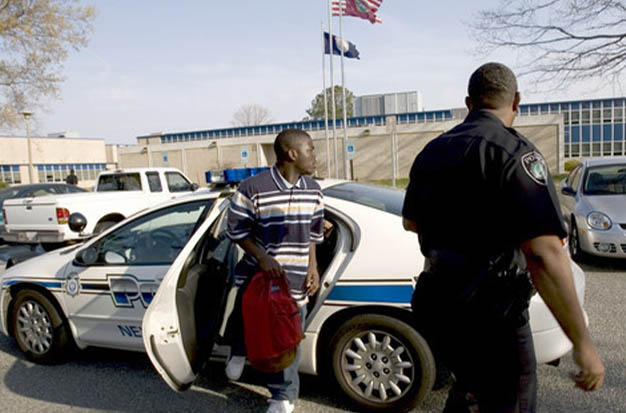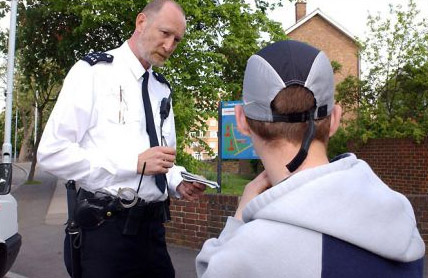
When there are so many video games available to play these days, kids sometimes just don’t want to go to school. Truancy officers may intervene to correct the behavior if that reluctance persists. From kindergarten through high school, most states mandate that students attend school. Monitoring students’ attendance and making sure they don’t miss too many classes is the responsibility of truancy officers. To help students understand the value of attending school, these officers collaborate with local law enforcement and school administrators.
Truancy Officer Job Description
A truant officer, also known as a truancy officer, is a specialist who supports young people’s success by encouraging them to attend school. A truant officer’s main responsibility is to make sure students attend class on a regular basis. Many states mandate that children remain in school until they are 17 years old. Truant officers might be employed by their neighborhood school system, the court system, law enforcement organizations, or even parents.
A truancy officer’s primary responsibility is to ensure that local and state laws governing school attendance are followed. When a student has a few absences, you typically won’t get involved, but you will look into cases of persistent truancy. In the end, your job as a truancy officer is to identify the root of chronic absenteeism and assist in finding a solution, not to punish students who skip class.
Average Salary For Truancy Officers And Job Outlook:
According to the Bureau of Labor Statistics, the median annual wage for all child, family, and school social workers is $49,150, which is the average salary for truancy officers. You should be aware that your earning potential varies depending on a number of variables. Professionals with many years of experience and advanced degrees typically make more money.
Additionally, your salary may be impacted by the cost of living in your city. Take, for instance, a truancy officer with a master’s in sociology who works in a major city and has ten years of experience. They are likely to be paid more than a recent undergraduate graduate working as a truancy officer in a small town.
At the crucial nexus of law enforcement and social work, the critical position of truancy officer, has an expected growth rate of about 6%, comparable to probation officers, which is average across all career fields. Whether you work for a law enforcement or social services organization, a county government or a board of education, your salary may vary significantly.
Starting pay can be in the mid-$30,000 range, but if you have a bachelor’s degree, you may be eligible for a much higher salary, more in the mid-$50–$60k range. In addition to a competitive salary, this position could also receive substantial benefits. Positions in the public sector frequently come with excellent pension and retirement plans, and you might even be eligible for student loan forgiveness.
What Qualifications And Qualifications Do Truant Officers Have?
These are some skills and abilities that employers may look for when hiring truant officers:
Conflict management: Truant officers frequently interact with young people who are having difficulties and may assist them in resolving disputes with their parents and teachers. They can re-engage students by teaching them how to handle conflicts.
Writing skills: Truancy officers frequently write thorough case reports on their students and may write paperwork to support their students in juvenile courts. They can demonstrate their students’ progress and effectively advocate for them by using their strong writing abilities.
Active listening: Truancy officers can build productive relationships with parents, teachers, and students by having good listening skills that enable them to comprehend their worries. By maintaining these connections, truancy officers can help students stay in school and complete their education on time.
Organization: Truant officers typically deal with a large number of students, each of whom has their own case files and records. Truancy officers can manage numerous case files and legal documents at once while attending to all of their student’s needs by using their organizational skills.
Negotiation: A truancy officer’s duties frequently include persuading students to attend class. They can effectively argue for their students and explain the advantages of attending and continuing in school if they have negotiation and persuasion skills.
Problem-solving: Truant officers can find solutions to absenteeism while managing elements like family dynamics, student behavior, school policies, learning difficulties, and local laws with the aid of their capacity to solve complex problems.

The Importance Of A Truancy Officer
According to data, more than six million students in our nation miss class frequently. Some of them are or have been the victims of domestic abuse, neglect, homelessness, or being unfairly assigned to look after younger siblings. Others miss class due to harassment or learning difficulties. When a child skips school, they run the risk of getting bad grades, having fewer interactions with their peers, and eventually dropping out. You have the power to positively impact at-risk students’ lives, improve their quality of life, and ensure they get the education and opportunities they deserve as truancy officer.
Social Worker Education
Depending on the municipality or school, there are different educational requirements for this position. However, the minimum requirement is frequently a high school diploma. Different educational needs might need to be satisfied depending on whether truancy officers are regarded as law enforcement officers or counselors. The website Best Accredited Colleges advises that a counselor will pursue a degree in social work or counseling. Depending on the state, obtaining a license occasionally involves having a master’s degree in social work or counseling. Being a truancy officer requires practical experience working with students and their families.
Law Enforcement Education
A college degree is typically required to become a police officer, preferably in the criminal justice field. Furthermore, before a member of the police can report for duty, they typically need to complete an academy. A truant officer’s job obviously places a lot of emphasis on working with kids and teenagers, so previous experience in this area is a plus. According to the Bureau of Labor Statistics, a degree in this field might also be useful, and taking classes in child development and psychology might be advantageous. These subjects are frequently covered in criminal justice curricula.
Licensing And Certification
Officers who deal with truancy typically don’t need any special permits. There is no general certification to become a police officer, although law-enforcement organizations may demand certification for particular skills. To become a social worker or counselor, certification is needed in many municipalities, though. Higher education or a graduate degree is also necessary for social work certifications. There are typically several levels of licensing that are available, ranging from an initial license to a Master or Clinical license. More education and experience are needed for higher levels of licensing.
